Covid-19 Survey Tool built in Joomla!
One of our clients at WebLab42 is a public health and safety organisation in The Netherlands aiming to protect the safety of everyone in the region. Police, fire squad and health and safety institutes work together in this organization. During the Covid-19 situation, we got a phone call from our contact: “Could you help us out? We need a tool to gather data from all kinds of health institutes on a daily basis, and we need this integrated in our website. And it needs to be up and running next Tuesday.”
The client needed to collect information about contamination, need for personal protection and available beds in all the health facilities in the region. How many people have tested positive on the virus in nursing homes, in mental health institutes, at shelters for the homeless? What is the exact situation on personal protection in these facilities? And where can we find extra beds, should the crisis run out of hand?
Six days to make it
In a normal situation building something like this would take at least three to four weeks. We would start with a kick off meeting with our client and make a thorough plan covering every part and every step of the project.
In this case we didn’t have three to four weeks.
We had six days, and two of these six days were Easter.
Global plan
We decided to turn our client’s rough idea into a global plan and start from there, trusting on progressive insights on both our and the client’s side.
The first thing we needed were forms to collect the data, and a place to store the data. We started out by creating new database tables, one for the institutes and one for each type of data we wanted to store: contaminations, personal protection equipment and beds. After that, we made extensive forms in RSForm! Pro: one for registration the organisation, and again one for each type of data.
Health facilities start by registering their contact data and up to 100 locations. That information is stored in the database, by custom PHP scripting.
After registration, the institute receives a personal link that leads to the forms used to gather the data. The personal link contains a token. Based on that token, we get data from the organisation table in the database and autopopulate the organisation fields. The user doesn’t have to re-enter the organisation data, only the numbers (contaminations, personal protection. Beds).
Each form inserts the collected data into the database. After submission, both the organisation and our client get a confirmation email with the provided data.
If a form is accessed without the personal link, the user gets to see a message, kind of like a 404 error, containing a link to an extra form that enables you to get your link resent to your email address. For organisations that forgot to register one or more locations, we made an extra form to do that afterwards; the “forgotten” location is added to the information we already have about this institute.
Excel output
Just like basically every other organisation, our client loves Excel. So to get insight in the data, they wanted to be able to download Excel sheets. Because everybody loves Excel, we had been here before. So we knew there’s a Joomla extension that helps you to export data from your database into an Excel-sheet. If you know how to write SQL-queries, you can create any Excel-sheet you want.
We configured Excel-output for every data type in the database: individual data about the situation per location and totals. In the site’s backend, we placed a module in the control panel so specific users can easily download these files. They pick the parameters for their file and they’re good to go.
And we’re live!
Easter this year was different for everyone, but a little more for us: instead of... well, whatever people do during Easter, we worked.
Tuesday after Easter, at twelve, our tool was meant to go live. We were sitting by the phone, waiting for our contact to ask for support, or telling us that we missed a tiny little thingy that needed to be fixed right away. Nothing happened. Just when we started to wonder whether they did go live at all, we got a message from our contact: “Everything works fine.” The next day, a huge bouquet of flowers was delivered, with a card that said: “Thank you for all your hard work.” We put it in a bucket (couldn’t find a vase big enough) and returned to our business as usual.
This job has changed the way we look at the figures provided in the news. It feels good to know you have somehow contributed to a better insight into the figures concerning Covid-19. And every Easter, we’ll remember the one in 2020 – like everyone, but slightly different.
Some images
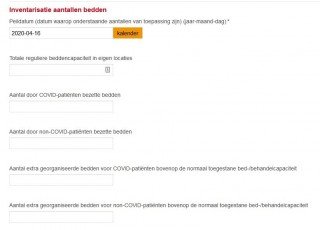
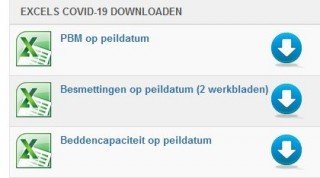
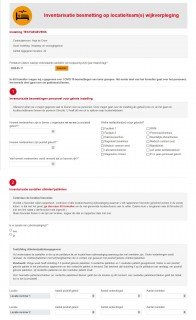
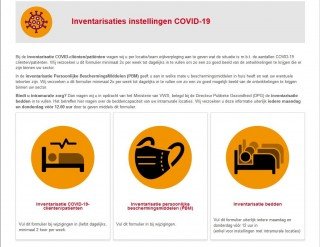
Some articles published on the Joomla Community Magazine represent the personal opinion or experience of the Author on the specific topic and might not be aligned to the official position of the Joomla Project
By accepting you will be accessing a service provided by a third-party external to https://magazine.joomla.org/
 Community Magazine
Community Magazine 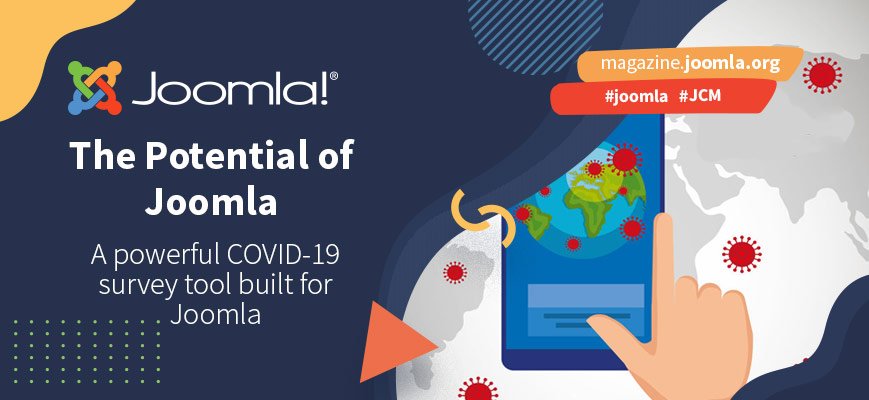
Comments